Spending coach reveals the five things she NEVER does with her money
A spending coach has revealed the five things she never does with her money that stop her from sabotaging her finances.
Paige Pritchard, 34, from Dallas, Texas, has almost 200,000 followers on TikTok, where she details how to stop overspending after overcoming her own struggles with impulse buying.
The content creator, who is the founder of the online community Overcoming Overspendingrecently opened up about the unhealthy spending habits she overcame to get a handle on her finances.
“I’m certainly not perfect at any of this, and when I say never, I mean almost never,” she clarified at the beginning of the class. videowhich has been viewed more than 2.1 million times.
Spending coach Paige Pritchard, 34, from Dallas, Texas, went viral on TikTok after sharing the five things she never does with her money
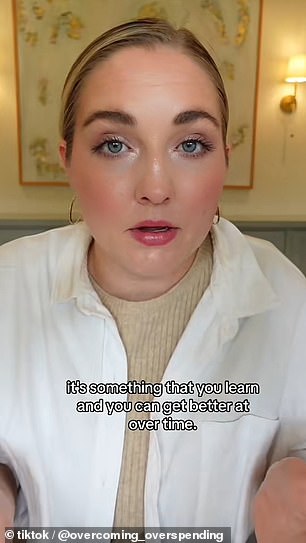
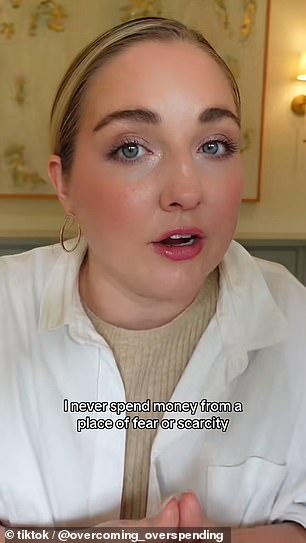
The content creator, the founder of the online community Overcoming Overspending, started off by saying that she will never spend money out of fear or scarcity.
“If you know me and my story, you know I’ve come a long way with my spending habits.”
Pritchard has opened up about how she once blew a $60,000-a-year salary while living with her parents after college.
After realizing she could barely afford to get her own home, she curbed her spending, paid off $98,000 in student loans and built a six-figure investment portfolio by the time she was 29.
‘If you watch this video and at the end you think, “Well, that’s great for you, but that can’t ever be me.” Don’t fall into that trap. It’s just not true,” she said.
‘Spending money is a skill. It’s something you learn and can get better at over time. I definitely still struggle with these five points.
“However, they are rules and guidelines that I use to guide my spending, and they are things that I consciously work on every day – and so can you.”
1. Never spend money out of fear or scarcity
Pritchard said she stops herself from making purchases when she feels scared or worried, which she said is “very difficult in today’s world.”
“Scarcity, urgency and fear tactics are the main ways marketers and retailers make you spend money you didn’t intend to spend,” she explained.
“If they tell you there’s only a certain amount left, that something is going to sell out, that the price is going to go up, those are all tactics to scare you into spending money.”
Pritchard said that before she spends money, she asks herself, “What is the underlying emotion driving this purchase?”
When she feels fear, stress, or anxiety, she acknowledges her emotional state and will stop herself from taking out her wallet.
“Whenever I make a purchase from that place, it’s always going to be a purchase I regret,” she noted.
2. Never spend more money to save money
Pritchard said she will almost never add items to her online shopping cart just to get free shipping on her purchases.
“There is one scenario where I will actually do this, and that is when the amount I need to add to my cart is exactly equal to the shipping cost – so if I need to add $10 to my cart to save $10 in shipping costs” , she explained.
The financial guru emphasized that this “rarely happens” and that she usually has to add $20 or more in purchases to her cart to save $5 in shipping costs.
“This is super hard to do because our brains see shipping as an inconvenience cost, a fee we don’t want to pay,” she said. “So we’ll irrationally spend more so we don’t have to pay those shipping costs.
“It’s a promise I made to myself and something I have to put into practice. I never spend anymore, just to save some money.’
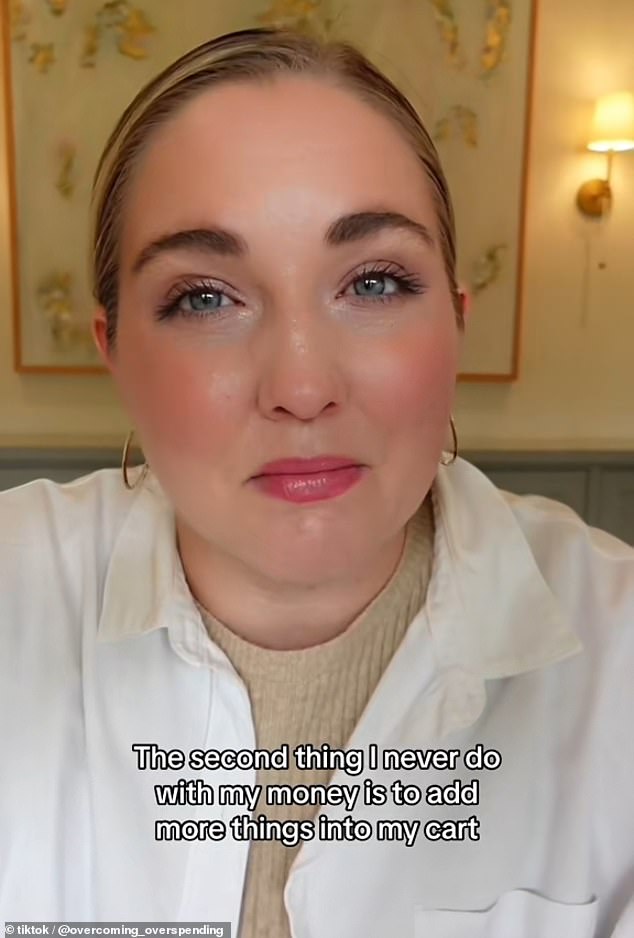
Pritchard explained that she will almost never add items to her online shopping cart just to get free shipping on her purchases
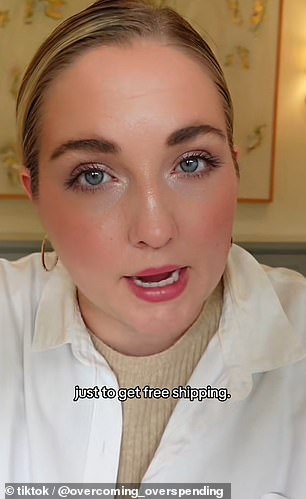
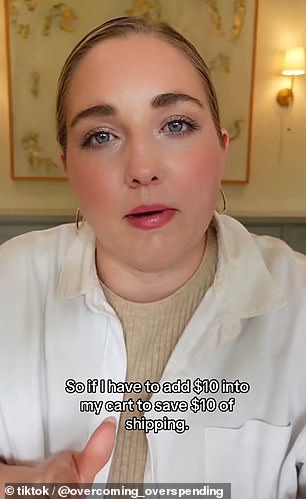
“There is one scenario where I will actually do this, and that is when the amount I need to add to my cart is exactly equal to the shipping cost,” she noted.
3. Never try to buy things that cannot be bought
Pritchard admitted that it took her years to realize that there are certain things that can’t be bought.
“I never try to solve an internal problem I have with an external solution. That means I never try to buy my confidence. “I never try to buy my self-worth,” she said.
“There were a lot of years of trying to do that without success, and it took me to a point where I realized, okay, no matter how much I spend, no matter what I buy, no matter how much I change my appearance. external environment, this doesn’t solve the problem I want to solve.’
Pritchard explained that she now holds herself back when she’s tempted to spend her money “trying to solve something that can only be solved internally.”
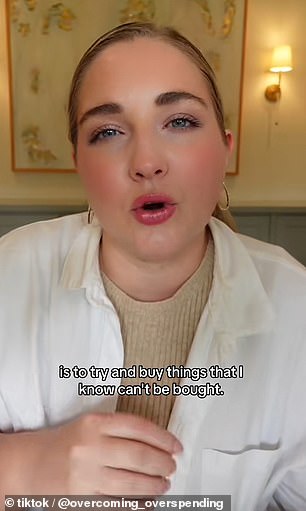
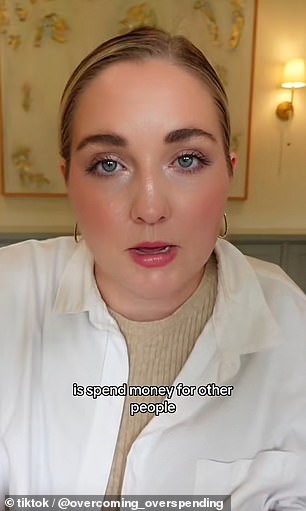
Pritchard added that she will never try to buy things that cannot be bought, such as trust, and that she will never spend money for the approval of others.
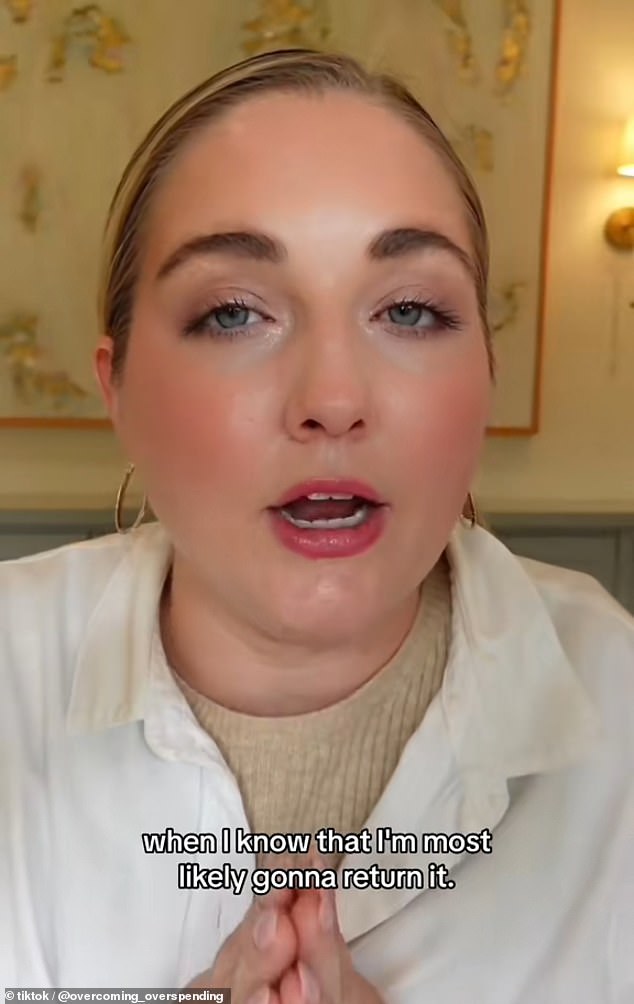
The financial guru concluded that the last thing she never does with her money is buy something when she knows she will probably give it back
4. Never spend money on the approval of others
Pritchard said she will no longer allow herself to fall into the trap of spending her money to earn someone else’s approval.
“The year I impulsively spent my annual salary, I was definitely spending money for other people. Now it was for me, but it was really for other people,” she explained.
‘I was desperate for the attention, validation and praise from other people. I got sucked into a lot of trends. I ended up spending a lot of money on things that weren’t really me, but I thought other people would like them.
She admitted that during this time in her life, she just wanted to “fit in” and “belong.”
“I wanted other people to look at me and say, ‘Oh my God, she’s so cool. She’s so trendy,'” she recalled. “So I ended up spending a lot of money for other people, but it didn’t really yield much for me.”
5. Never buy something you plan to return
Pritchard concluded that the last thing she never does with her money is buy something when she knows she will probably give it back.
‘I see this a lot with my customers. They spend a lot of money saying, ‘Oh, if I don’t like it, I can send it back,'” she said. “And listen, I’m not saying you should stick with a product you don’t like or doesn’t work for you.”
“But I also feel like we’re spending a lot with the backup of, ‘Oh, I can give it back if this doesn’t work out.'”
Pritchard explained that if you already know you’re going to return something, you’re making the purchase just to get the “dopamine hit.”
In these situations she always wonders, ‘IIf this return wasn’t an option, would I buy it?’
“Now, of course, we know that it’s usually (returnable),” she added, “but if I’m in the purchasing decision stage at that point, I’ll take the return option off the table for a moment to give me some clarity around the purchase.”
